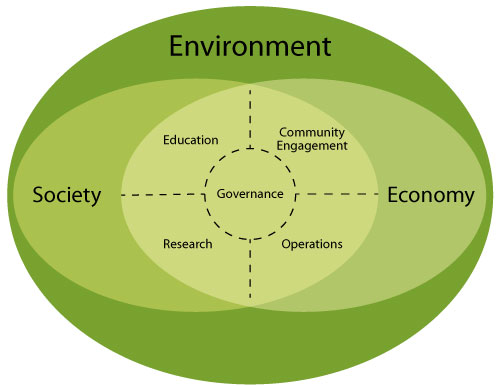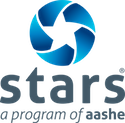History of Sustainability at the University of Saskatchewan

Sustainability initiatives have been formally pursued in campus operations since 2004 when a Sustainability Coordinator was hired in the Facilities Management Division. On the academic side, sustainability became an area of focus in graduate studies with the establishment of the School of Environment and Sustainability in 2007. More recently, in 2012, the Sustainability Education Research Institute (SERI) was established to conduct research on environment and sustainability in relation to education.
In its Second Integrated Plan, the university identified sustainability as a global issue that needs addressing in all areas of its activities. An 11 member group of representatives from across campus, the Sustainability Commitment Working Group (SCWG), was formed.
Over the course of the Second Integrated Plan's 4-year cycle, the SCWG undertook benchmarking and extensive stakeholder consultation to understand the gap between where we were and where we should be. They measured the university's sustainability performance using the Sustainability Tracking, Assessment & Rating System™. A bronze rating was achieved. Understanding where gaps existed, the SCWG then developed a unified strategy to move the university toward realizing sustainability as a central organizing principle across five areas—education, research, operations, community engagement and governance. The strategy included:
- A Campus Sustainability Plan;
- Becoming a signatory to the University and College Presidents’ Climate Change Statement of Action for Canada;
- Establishing a Sustainability Committee with campus-wide representation to provide leadership;
- Establishing the Campus Sustainability Revolving Fund.
The Third Integrated Plan commited to "Model Sustainability and Practice Effective Stewardship", setting a goal for a STARS Silver rating by 2020. This goal was achieved early in January 2017, with a new goal of STARS Gold in our 2020 submission. In 2017 the university also updated its Mission, Vision, and Values statement which included sustainability as one of the defining principles of the University of Saskatchewan.
The President's Advisory Circle on Sustainability was a body formed in 2016 comprised of sustainability leaders with the primary purpose of advising and counselling the President on how to advance and support sustainability values, commitments, and actions at the University of Saskatchewan. It served as a forum to discuss campus sustainability challenges and to support students, faculty and staff to participate meaningfully in the planning and implementation of institutional sustainability initiatives and practices.
The Council is no longer active as of 2019.
STARS
 The Sustainability Tracking, Assessment and Rating System™ (STARS) is a transparent, self-reporting tool for measuring sustainability performance at post-secondary institutions. STARS was developed by the Association for the Advancement of Sustainability in Higher Education with broad participation from the higher education community. We are one of the nearly 600 colleges and universities that has reported using the system.
The Sustainability Tracking, Assessment and Rating System™ (STARS) is a transparent, self-reporting tool for measuring sustainability performance at post-secondary institutions. STARS was developed by the Association for the Advancement of Sustainability in Higher Education with broad participation from the higher education community. We are one of the nearly 600 colleges and universities that has reported using the system.